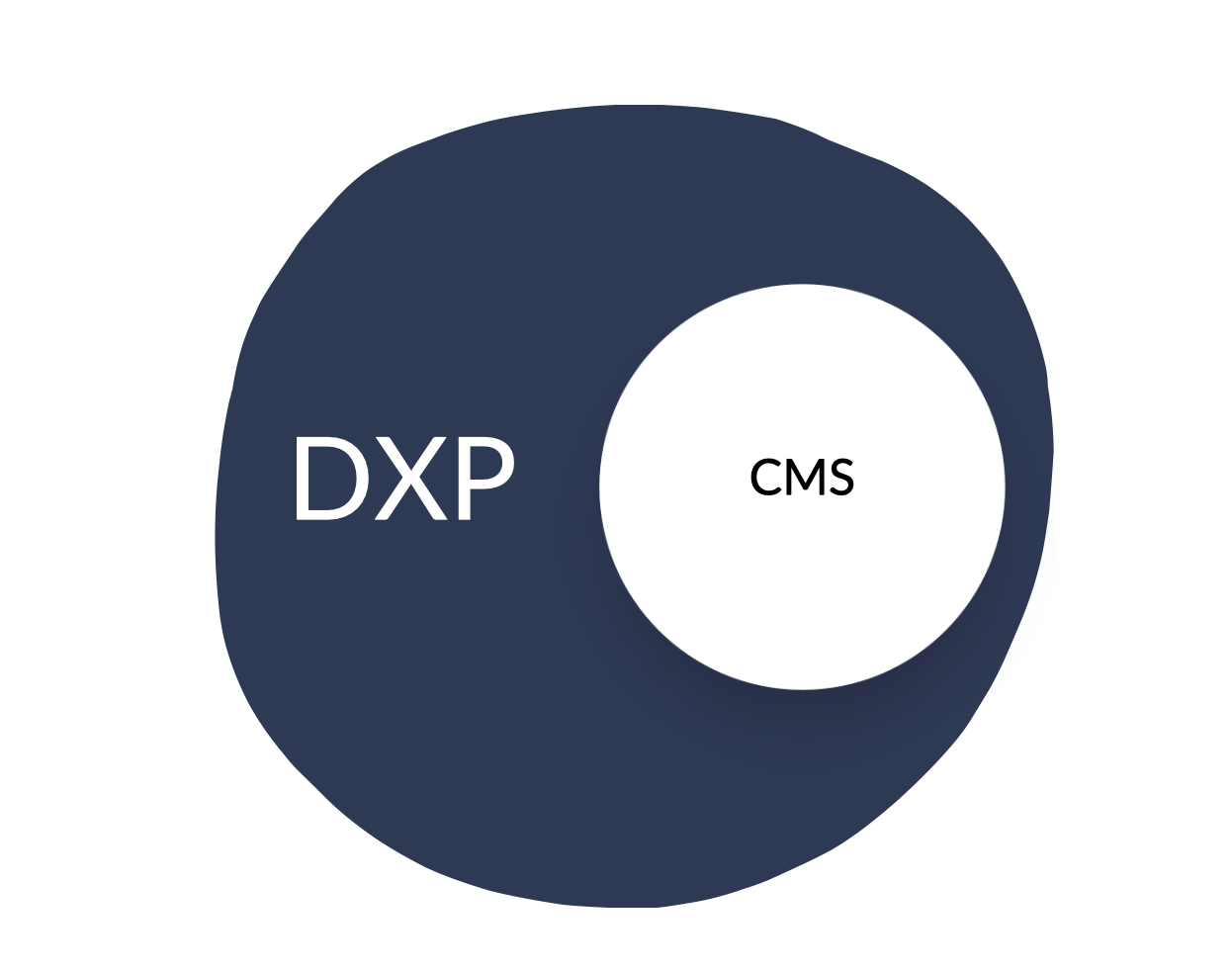Intro to Digital Experience Platforms (DXP)
Get the inside scoop on DXP from industry veteran Rob Hoeijmakers. Understand the key features and how to select the right DXP vendor for your organization.

A digital experience platform (DXP) is a software solution that helps organizations create, manage, and deliver personalized digital experiences to their customers, employees, or other stakeholders.
DXPs typically provide a range of tools and capabilities that enable organizations to design, build, and publish digital content and applications, such as websites, mobile apps, and online portals, as well as to track and analyse how users interact with these experiences.
Key features of a DXP
Some key features of a DXP may include:
- Content management: DXPs often provide a content management system (CMS) that enables users to create, edit, and publish digital content such as text, images, videos, and audio.
- Personalization: DXPs may include features that allow organizations to tailor the digital experiences they deliver to individual users based on their preferences, behaviours, or other factors.
- Integration: DXPs often provide tools that enable organizations to integrate their digital experiences with other systems and technologies, such as customer relationship management (CRM) systems, enterprise resource planning (ERP) systems, and marketing automation platforms.
- Analytics: DXPs may include analytics and reporting tools that help organizations track and analyse how users interact with their digital experiences, so they can understand how effective they are and make improvements.
DXP solutions are often used by organizations in a variety of industries, including retail, financial services, healthcare, and media, to improve customer engagement and loyalty, drive sales and revenue, and streamline business processes.
A Digital Experience Platform provides the architectural foundation and modular services for developers and practitioners to create, orchestrate, and optimize digital journeys at scale - to drive loyalty and new commerce outcomes across owned and third-party channels.
Difference between DXP and CMS
I just explained the DXP, and it sounds similar to a traditional CMS.
A content management system (CMS) is a software application that enables users to create, edit, and publish digital content, such as text, images, videos, and audio, on the web or other platforms. A CMS typically provides a user-friendly interface and a set of tools for organizing and managing digital content, as well as for controlling access to and publishing that content.
While a DXP may include a CMS as part of its suite of tools, it typically offers a wider range of capabilities beyond just content management. In addition to a CMS, a DXP may provide tools for personalization, integration, analytics, and other functions that are designed to help organizations deliver more effective and engaging digital experiences.
Therefore, the main difference between a DXP and a CMS is that a DXP is a more comprehensive solution for creating, managing, and delivering digital experiences, while a CMS is primarily focused on managing and publishing digital content.

Theoretically, DXP's combine “Content Management” with “Engagement Management”, to allow teams the flexibility of creating omni-channel content, with the reliability of agile workflows, data-driven insights, and consistent user-journeys.
DXP Vendors
There are many vendors that offer digital experience platform (DXP) solutions.
Some examples include:
- Adobe Experience Platform
- Acquia
- Bloomreach
- Episerver
- Kentico
- Sitecore
- OpenText
- Oracle
- Salesforce
- SAP
These vendors offer a range of DXP solutions with different features, capabilities, and pricing models. Some DXPs are designed for specific industries, such as retail, financial services, or healthcare, while others are more general purpose and can be used in a variety of contexts.
It's worth noting that DXP solutions can be complex and may require significant customisation and integration with other systems and technologies. Therefore, it's important for organizations to carefully consider their needs and goals when selecting a DXP vendor, and to carefully evaluate the capabilities and fit of the different options available.



